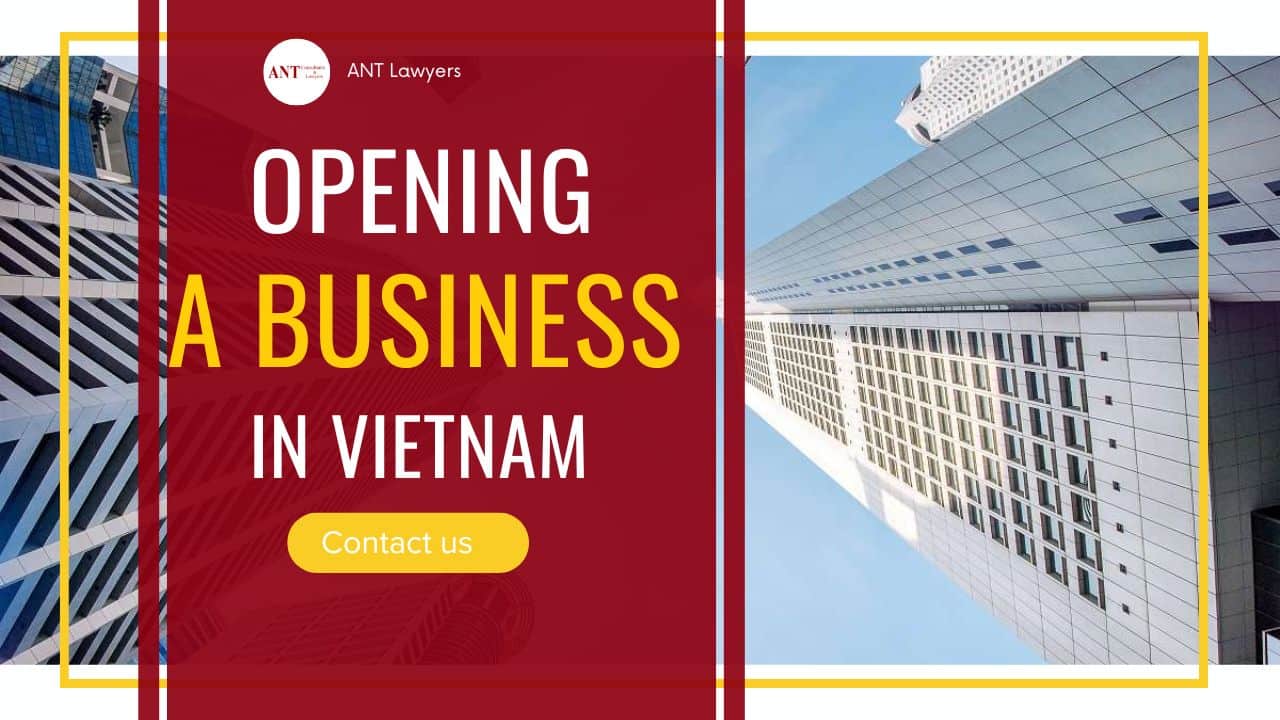Opening a Business in Vietnam: 10 Quick Tips


Opening a Business in Vietnam
Opening a business in Vietnam has increasingly become a opportunity for foreign investors, thanks to the country’s strong economic growth, strategic location in Southeast Asia, and proactive government reforms aimed at improving the business climate.
However, venturing into the Vietnamese market involves navigating through various cultural, legal, and procedural intricacies.


The following aims to provide essential tips and insights for foreigners considering opening a business in Vietnam, focusing on the unique challenges and opportunities present in the Vietnamese business environment.
Introduction of Opening a Business in Vietnam
Vietnam has emerged as a promising destination for foreign investors due to its rapid economic growth and increasingly favorable business environment. Opening a business in Vietnam presents numerous opportunities but also requires a thorough understanding of the local market dynamics, legal requirements, and cultural nuances. Understanding the business environment, legal environment are the key to success however such are not enough without considering matters like cultures, business practice, living environment and language barrier. It is important to take enough time to experience and talk to business people, local legal experts and local people to experience yourself instead for the success of opening a business in Vietnam.
Understanding the Vietnamese Business Environment for Opening a Business in Vietnam
To effectively penetrate the Vietnamese market, it’s essential to comprehend the broader economic landscape, key industries, and government initiatives that shape the business environment.
1.Economic Landscape
Vietnam’s economy has been growing at an impressive rate, with a consistent GDP growth averaging around 6-7% annually over the past decade. This growth is driven by various factors, including a young and dynamic population, increasing urbanization, and significant foreign direct investment (FDI).
2.Key Industries for Opening a Business in Vietnam
Several industries in Vietnam have shown remarkable growth and offer promising opportunities for foreign investors. These include:
- Manufacturing: Vietnam is a global manufacturing hub, particularly for electronics, textiles, and footwear.
- Agriculture: The country is one of the world’s leading exporters of rice, coffee, and seafood.
- Technology: The tech sector is booming, with increasing investment in startups and innovation hubs.
- Tourism: Vietnam’s rich cultural heritage and natural beauty attract millions of tourists annually.
3.Government Initiatives
The Vietnamese government has implemented various policies and reforms to attract foreign investment and improve the business environment. These include:
- Simplification of Business Procedures: Efforts to reduce administration procedures and streamline business registration processes for opening a business in Vietnam.
- Tax Incentives: Offering tax breaks and incentives for certain industries and regions.
- Infrastructure Development: Significant investments in infrastructure, including transportation, energy, and telecommunications.
4.Challenges and Opportunities for Opening a Business in Vietnam
While Vietnam presents numerous opportunities, there are also challenges that foreign investors need to be aware of:
- Regulatory Complexity: Navigating the legal and regulatory framework can be complex and time-consuming.
- Cultural Differences: Understanding and adapting to local business practices and cultural norms is crucial.
- Market Competition: Increasing competition from both local and international businesses.
Legal Requirements and Business Structures Opening a Business in Vietnam
Choosing the right business structure and understanding the legal requirements are critical steps in opening a business in Vietnam.
1.Types of Business Structures
Foreign investors can choose from several business structures, each with its own advantages and requirements:
- Limited Liability Company in Vietnam (LLC): The most popular choice for foreign investors due to its flexibility and limited liability. LLCs can be wholly foreign-owned or set up as a joint venture with a local partner.
- Joint-Stock Company in Vietnam (JSC): Suitable for larger businesses that plan to raise capital through the issuance of shares. JSCs require at least three shareholders.
- Representative Office in Vietnam: Allows foreign companies to explore the market without engaging in direct commercial activities. It is primarily used for market research and liaison purposes.
- Branch Office in Vietnam: Permits foreign companies to conduct business activities directly in Vietnam without establishing a separate legal entity.
2.Registration Process of Opening a Business in Vietnam
The process of opening a business in Vietnam for foreigners involves several steps, including:
- Company Name Registration: The company name must comply with Vietnamese naming regulations and should not be identical or confusingly similar to existing names.
- Investment Certificate: Required for foreign-owned enterprises. This certificate serves as proof of the investor’s commitment and the legality of the investment.
- Business Registration Certificate: This official document recognizes the business entity and allows it to operate legally in Vietnam.
3.Licensing and Permits
Depending on the nature of the business, additional licenses and permits may be required. These could include sector-specific licenses, environmental permits, and operational licenses from local authorities.
Cultural Considerations While Opening a Business in Vietnam
Understanding and adapting to Vietnamese culture is essential for building successful business relationships and navigating the local market.
1.Communication Style
Vietnamese communication tends to be indirect and nuanced. Understanding non-verbal cues and reading between the lines is important. Maintaining a calm and respectful demeanor is crucial, as open conflict and direct criticism are generally avoided.
2.Building Relationships
Building trust and long-term relationships is fundamental in Vietnamese business culture. This often involves:
- Networking: Attending social events, business forums, and networking sessions to establish connections.
- Relationship Building: Investing time in getting to know business partners on a personal level.
3.Important Festivals and Holidays
Understanding and respecting local festivals and holidays is important for smooth business operations. Major holidays include: Tet (Lunar New Year), the most significant holiday in Vietnam, usually celebrated in late January or early February. Businesses may close for up to a week.
Investment Requirements of Opening a Business in Vietnam
Foreign investors must be aware of the financial commitments required to open a business in Vietnam. This includes understanding minimum capital requirements and other related costs.
1.Minimum Capital Requirements
For most of business, Vietnam does not imposes minimum capital requirements for foreign-owned businesses. But Vietnam authorities request the investors to propose business plan and explain its potentials, or in other words foreign investors are encourage to commit a certain investment amount which vary depending on the type of business and industry. These requirements are designed to ensure that foreign investors have sufficient financial resources to support their business operations. Further, the authorities might sometime issue directives to encourage “quality projects” and it could be understood the capital commitment could be one of the key important factors.
2.Real Estate and Office Space
Securing appropriate real estate and office space is a significant consideration. Costs can be high in major cities like Hanoi and Ho Chi Minh City. It is important to budget for:
- Office Rent: Prices vary based on location, size, and amenities.
- Purchase of Property: Foreigners can lease land for up to 50 years, with the possibility of extension.
3.Operational Costs
Operational costs include staffing, utilities, marketing, and compliance costs. It is crucial to have a detailed financial plan to manage these expenses effectively.
Visa and Immigration When Opening a Business in Vietnam
Securing the appropriate visa and understanding immigration requirements is essential for foreign entrepreneurs planning to live and work in Vietnam.
1.Visa Types
Several visa options are available for foreign investors and business owners:
- Business Visa (DN Visa): Allows for short-term stays for business purposes, typically up to 12 months.
- Investor Visa (DT Visa): Available for foreign investors and their family members. It offers longer-term residency options, often linked to the amount of capital invested.
- Work Permit: Required for foreigners employed by a Vietnamese company. The process involves obtaining an approval letter from the Ministry of Labor, Invalids and Social Affairs (MOLISA).
2.Residency Requirements
To obtain long-term residency, foreign investors must provide documentation proving their investment and business activities. This may include:
- Investment Certificate: Demonstrating the legality and amount of investment.
- Business Registration Certificate: Proof of the business entity’s legal status.
- Tax Clearance: Ensuring compliance with local tax obligations.
3.Long-term Stay Options When Opening a Business in Vietnam
While opening a business does not automatically grant long-term residency, several pathways can facilitate extended stays:
- Temporary Resident Card (TRC): Issued to foreign investors, allowing them to reside in Vietnam for up to three years.
Compliance and Reporting While Opening a Business in Vietnam
Compliance with local laws and regulations is crucial for the smooth operation of a business in Vietnam. This includes regular reporting and submission to various authorities.
1.Taxation
Understanding the taxation system in Vietnam is essential for financial planning and compliance. Key taxes include:
- Corporate Income Tax (CIT): Standard rate is 20%, with preferential rates available for certain industries and regions.
- Value Added Tax (VAT): Standard rate is 10%, with reduced rates for specific goods and services.
- Personal Income Tax (PIT): Progressive rates ranging from 5% to 35%.
2.Annual Reporting Obligations
Businesses in Vietnam are required to submit various reports to regulatory authorities, including:
- Financial Statements: Annual financial statements must be audited and submitted to the tax authorities.
- Tax Returns: Regular submission of tax returns, including CIT, VAT, and PIT.
- Statistical Reports: Periodic submission of statistical data to government agencies.
3.Labor Laws and Employment Regulations
Compliance with labor laws is critical for maintaining a productive and lawful workplace. Key aspects include:
- Employment Contracts: Written contracts are mandatory for all employees, outlining terms and conditions of employment.
- Social Insurance: Employers must contribute to social insurance, health insurance, and unemployment insurance for their employees.
- Work Permits: Required for foreign employees, with specific procedures for application and renewal.
Strategic Tips for Success for Opening a Business in Vietnam
To succeed in the Vietnamese market, foreign entrepreneurs should consider the following strategic tips:
1.Local Partnerships
Partnering with local businesses can provide valuable insights and facilitate market entry. Benefits include:
- Local Expertise: Gaining knowledge of local market conditions and consumer preferences, or consulting with business lawyers in Vietnam and have regular meeting with them.
- Regulatory Navigation: Assistance with navigating complex regulatory requirements.
2.Market Research and Consumer Insights
Thorough market research is essential for understanding the competitive landscape and identifying opportunities. This involves:
- Consumer Behavior Analysis: Understanding local consumer preferences and purchasing habits.
- Competitive Analysis: Identifying key competitors and their strategies.
3.Adaptation and Flexibility
Flexibility and willingness to adapt to local conditions are crucial for success. This includes:
- Product and Service Adaptation: Tailoring offerings to meet local needs and preferences.
- Operational Flexibility: Adjusting business operations based on local feedback and market conditions.
4.Networking and Community Engagement
Building a strong network with local businesses, authorities, and community leaders can enhance business prospects. Strategies include:
- Attending Business Forums: Participating in industry events and business forums.
- Community Involvement: Engaging in community activities and corporate social responsibility (CSR) initiatives.
Case Studies and Success Stories Opening a Business in Vietnam
Learning from successful foreign businesses in Vietnam can provide valuable insights and inspiration. This section highlights a few examples:
1.Example 1: Manufacturing Success
A foreign-owned electronics manufacturing company successfully established operations in Vietnam by partnering with a local firm. Key factors in their success included:
- Local Partnership: Collaboration with a local partner provided valuable market insights and facilitated regulatory compliance.
- Strategic Location: Choosing a location in an industrial zone with good infrastructure and access to skilled labor.
2.Example 2: Technology Startup
A tech startup focused on mobile app development entered the Vietnamese market and achieved rapid growth. Success factors included:
- Market Research: Comprehensive market research identified a gap in the market for their product.
- Adaptation: Customizing their app to cater to local user preferences and behavior.
3.Example 3: Hospitality Venture
A foreign entrepreneur opened a boutique hotel in a popular tourist destination. Success was achieved through:
- Cultural Adaptation: Incorporating local design elements and cultural experiences into the hotel’s offerings.
- Networking: Building strong relationships with local tourism authorities and community leaders.
Conclusion on Opening a Business in Vietnam
Opening a business in Vietnam presents both exciting opportunities and significant challenges. By understanding the legal requirements, cultural nuances, and strategic steps for success, foreign entrepreneurs can establish profitable and sustainable ventures in this dynamic market. Thorough preparation, flexibility, and a commitment to building strong relationships are essential for navigating the complexities of the Vietnamese business environment.
Opening a business in Vietnam is a rewarding journey that requires careful planning and adaptation. With the right approach, foreign investors can tap into the immense potential of the Vietnamese market and achieve long-term success.
About ANT Lawyers, a law firm in Vietnam
We help clients overcome cultural barriers and achieve their strategic and financial outcomes, while ensuring the best interest rate protection, risk mitigation and regulatory compliance. ANT lawyers has lawyers in Ho Chi Minh city, Hanoi, and Danang, and will help customers in doing business in Vietnam.


Business Registration in Vietnam: What Important 5 Steps Guide to Follow?


10 Challenges of Doing Business in Vietnam
How Easy to Start a Business in Vietnam as a Foreigner in 5 Steps
How Vietnam Has Simplified Procedures to Register Business in Vietnam?
What Are the Advantage of Foreign Investors in Setting up Business in Vietnam?
Establish Business in Vietnam and Obtain Business Registration Certificate
How ANT Lawyers Could Help Your Business?
You could learn more about ANT Lawyers Foreign Investment Practice or contact our English speaking solicitors in Vietnam for advice via email ant@antlawyers.vn or call our office at +84 28 730 86 529
Recent Posts
5 Crucial Facts About ESG Laws in Vietnam That Could Save Your Business and Reputation
The Business World Is Changing Fast Rules are shifting. Expectations are rising. Eyes are watching. …
7 Powerful Reasons Why ESG Compliance in Vietnam Will Win You Trust, Growth, and Global Clients
Trust matters. Today, more than ever. Across industries, many companies are now being asked. directly…
7 Bold Reasons Why Tokenization in Vietnam Could Transform Your Future
Change is coming. Quietly. Digitally. Rapidly. Let’s imagine the situation, which assets are no longer…
Vietnam P2P Lending: 5 Bold Reasons Why Decree 94/2025 Could Empower Millions or Backfire?
A New Financial Chapter Begins in Vietnam One person lends. Another borrows. It’s that simple.…
5 Essential Lessons from Risk Management in Digital Assets in Vietnam: Protecting Trust in a Digital World
Trust Is the Real Currency Money can be lost. Tokens can vanish. Platforms can crash.…
5 Powerful Reasons Why Vietnam Digital Asset Sandbox Is a Bold and Hopeful Move for Innovation
Change is fast. Rules are slow. But innovation can’t wait. As digital assets grow, so…


